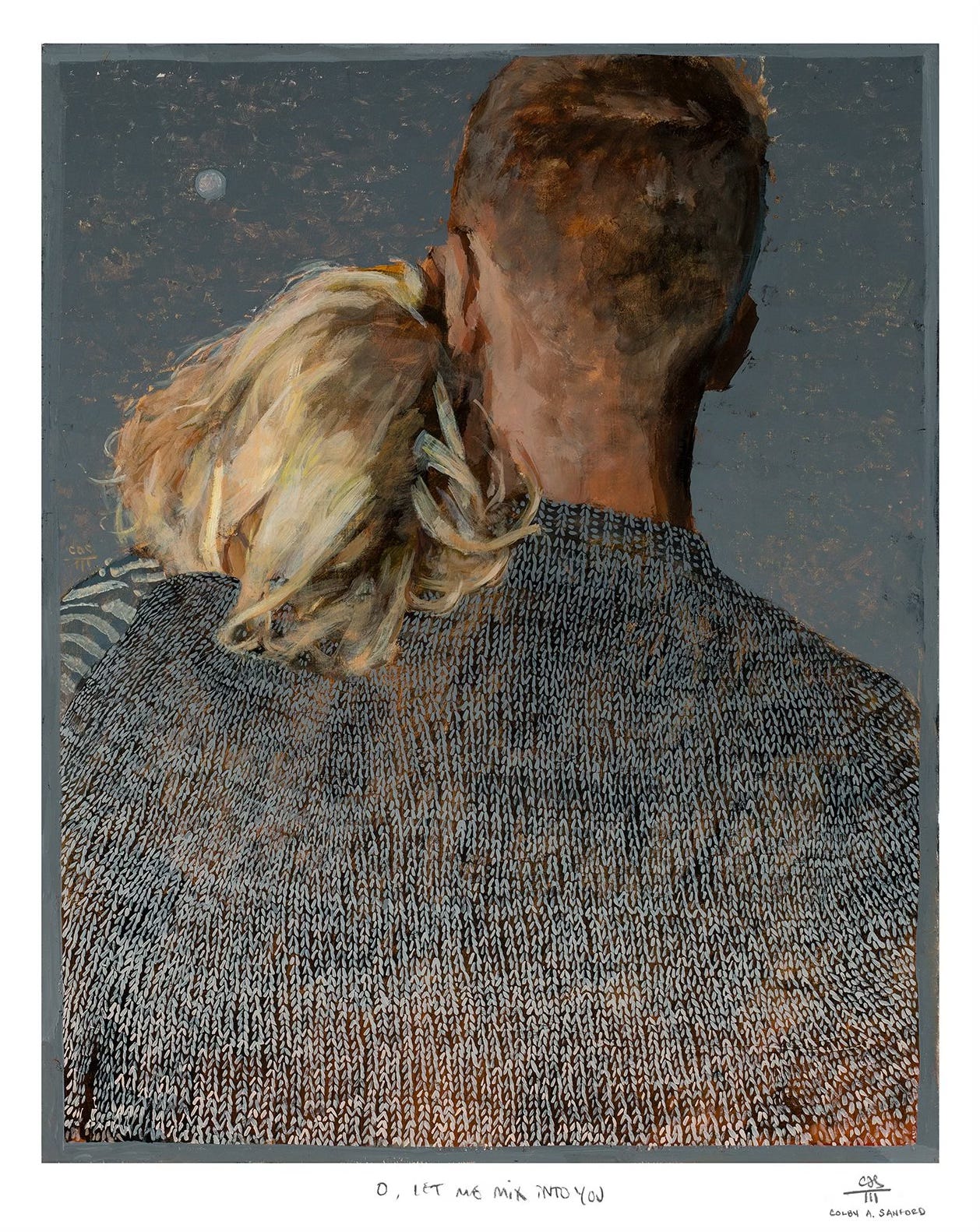In honor of Father’s Day we present a collection of essays that explores the sacredness and complexity of fatherhood. We invite you to read and consider them, allowing their stories and ideas to challenge and expand the way you view the fathers in your life.
My dad lived for road trips. From the time he could drive, he had been drawn to the open string of highways running through the Western states. But when he became a father, these drives turned into family trips, only enjoyable if they happened at night while his five young children were sleeping. He would wake in the early morning hours and carry us kids from our beds to the loaded Chevy van, laying us side-by-side on the pallet bed the collapsed bench seat made. Squished together under a heavy blanket of flayed sleeping bags, we would set out into the vast landscape of the Arizona desert, the hum of the engine quickly lulling us back to sleep.
These midnight voyages always produced a strange, dreamlike feeling when the sun came up. I would peg my face against the cold window and squint my eyes at the new world of evergreens and mountains, not quite knowing how I had gotten there, but sensing I was right in the middle of some grand adventure.
The older I get, the more it occurs to me that every father-child story begins not at the beginning, but in the middle. We meet our fathers in medias res—in the midst of things—born part-way through their life’s journey, somewhere on their path between childhood and maturity.
On those old family trips, there was no way for me to tell what dark roads my dad had taken to get to the place in which I would magically awaken; no awareness of the sky-breaking sweep of storms he may have outrun, or the press of loneliness and responsibility that may have saturated his night. Nevertheless, he greeted me warmly at dawn, a little tired and travel-worn, and we continued on together.
In the memoir essays that follow, five writers explore the layered, unfinished middle-ness of fatherhood, earthly and heavenly. Peter Conti-Brown describes how his son’s baptism transforms the way he views his father’s tragic life by allowing him to find grace in unseen struggles. Paul Reeve recounts how receiving an unexpected gift becomes a surprising revelation of his father’s quiet but steady love for him. Tyler Johnson interrogates the beauty and power of words, an understanding that begins as a boy under his father’s careful and playful writing tutelage. Isaac Richards braids his father’s poems into an essay that lovingly explores connections between poetry, scripture, and memory. And John Turner describes how his relationship with his own father is impacted as he writes Joseph Smith’s biography and learns of Joseph’s unwavering love for his imperfect father.
As these unique and thoughtful writers seek to make meaning of their experiences with fatherhood—some, as fathers themselves—we hope their essays help you imagine a more expansive vision of the hallowed yet complex relationships in your own lives and embrace living them in medias res.
Reflections on Father and Son
I’ve been reflecting on a few experiences that have helped me think through who I am as a father and who I am as a son.
Cherry Twizzlers and the Joy of Unexpected Grace
If ye then, being evil, know how to give good gifts unto your children, how much more shall your Father which is in heaven give good things to them that ask him? (Matthew 7:11)
Through a Glass Darkly
part of peace and all of ear. Pressure, and release, a life in one word: pear. Speak again, green god, in Adam’s vowels; I hear, and it is sweet. —from “To a Pear” by Jim Richards
Tricia Cope is a writer of poetry, creative nonfiction, and literary criticism. She has taught writing classes at Brigham Young University and has recently joined the Wayfare editorial team.
Art by Colby Sanford.








